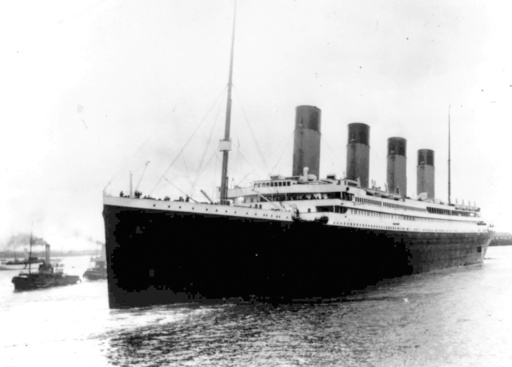NORFOLK, Va. — The firm that holds the salvage rights for the Titanic announced on Thursday that it has not yet finalized any plans to recover additional artifacts from the famous shipwreck. This statement may potentially lessen an ongoing legal dispute with the federal government of the United States.
Based in Georgia, RMS Titanic Inc. indicated in a recent court submission that it will not be making an expedition to the wreck site in 2025. The company is currently weighing the legal and financial ramifications of any future salvage activities. Since being recognized by the court as the steward for Titanic artifacts in 1994, RMST has successfully retrieved thousands of items ranging from silverware to sections of the ship’s structure, which have been displayed in various exhibitions worldwide.
For several years, the U.S. government has cautioned RMST that any intrusion into the Titanic wreckage, or alterations to the site, would breach a federal statute enacted in 2017, alongside an agreement with Great Britain that takes the view of the wreck as a memorial for over 1,500 individuals who perished when the ship collided with an iceberg in the North Atlantic in 1912.
The company’s last retrieval operation occurred in 2010, prior to the implementation of the new law and agreement. However, RMST has submitted proposals to a federal admiralty court in Virginia to recover further artifacts, which has sparked frustration from U.S. officials.
RMST has previously responded to governmental efforts aimed at enforcing restrictions on its salvage rights, arguing that the admiralty court exclusively retains authority in this jurisdiction and that U.S. interference is unconstitutional.
As the famous shipwreck continues to deteriorate on the ocean floor, legal challenges between RMST and the government have intensified. This situation was further complicated by a tragic incident last year, where the Titan submersible imploded, leading to the loss of five lives, including RMST’s underwater research director, Paul-Henri Nargeolet.
During Thursday’s court proceedings, RMST communicated its stance on future salvage expeditions at the court’s request. A federal judge is currently deliberating over a U.S. legal challenge aimed at limiting RMST’s activities at the Titanic site.
The government’s legal action was initiated last year when RMST had proposed to capture images within the hull of the sunken ship and recover items from the surrounding debris. Initially, the company had expressed intentions to retrieve freestanding objects from the area where the Titanic sent out its distress signals.
Subsequently, RMST decided to scale back its diving plans in response to Nargeolet’s tragic passing, now only intending to photograph the exterior of the wreck. The Titan submersible belonged to another company, OceanGate, with Nargeolet providing expertise for that venture. He had been slated to lead the RMST exploration.
Following the adjustment in its exploration plans, the U.S. government ceased its attempt to halt this particular expedition, which was carried out in the summer. However, officials still hinted at the possibility of contesting any future salvage efforts.
The government expressed its intention to remain viable as a party in RMST’s salvage case, asking the court to postpone a verdict on its motion to intervene until the company discloses any forthcoming salvage strategies.
In its statement, RMST mentioned that it requires additional time to determine its next course of action, and it is opposed to the U.S. motion for intervention.
U.S. District Judge Rebecca Beach Smith oversees Titanic salvage proceedings in the Norfolk federal court. During a hearing in March, she remarked that the U.S. government’s lawsuit against RMST poses significant legal challenges.
Judge Smith noted that Congress can amend maritime laws, referencing regulations regarding access to the Titanic site. Nonetheless, she raised doubts about whether Congress has the power to divest courts of their admiralty jurisdiction when dealing with shipwrecks, a principle steeped in centuries of legal tradition.
In 2020, Judge Smith granted RMST authorization to recover and display the radio that was used to send distress signals from the Titanic. However, U.S. officials challenged this endeavor in court, although the resultant legal battle was never resolved due to RMST’s postponement of plans caused by the COVID-19 pandemic.
